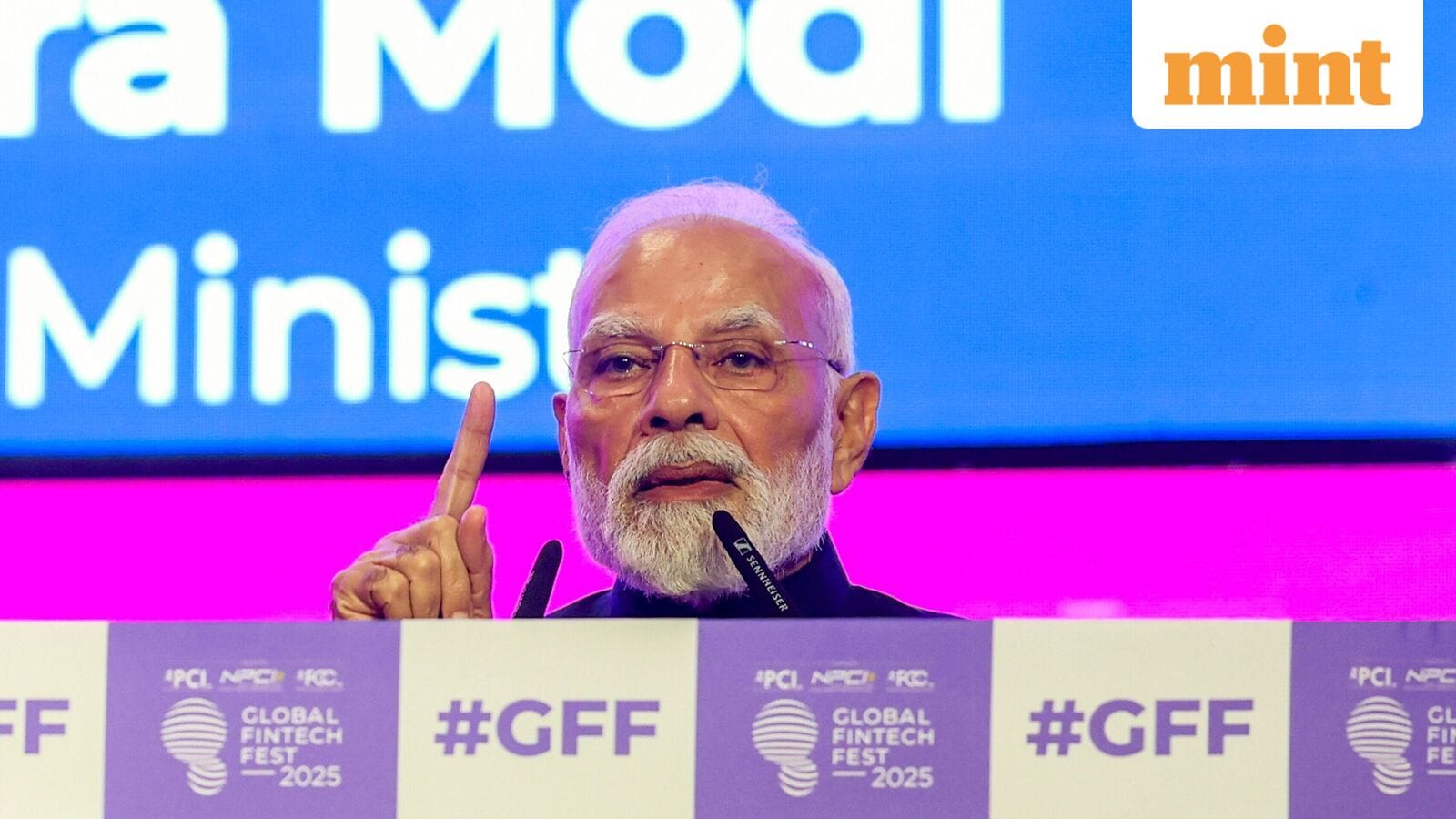Mumbai: Under its artificial intelligence (AI) mission, India is building high-performance computing capacity to ensure that every innovator and start-up has access to new technologies at a low cost and with ease, Prime Minister Narendra Modi said on Thursday at the Global Fintech Fest 2025.
“We are trying to reach the benefits of AI to every district and every language. Our centres of excellence, skilling hubs and indigenous AI models are soliciting this,” he said, adding that in the field of AI, India’s approach has been to focus on three main principles—equitable access, population scale and responsible deployment.
“The experience of India’s digital public infrastructure and our learning repository can be useful for the world. The level of digital public infrastructure we are moving towards, we want to take it forward in AI as well.”
Also Read | The man, the policies: What makes Modi special
“India has always been on the side of a global framework for ethical AI, and for India, AI means ‘all inclusive”, he said.
Combined with the growth in domestic start-ups, this has earned India a spot in the top three most funded fintech ecosystems in the world in the first six months of this year, Modi said. Digital payments have become routine in India today, with 50 out of every 100 real-time digital transactions in the world happening in India.
India’s digital stack includes the Unified Payment Interface (UPI) platform, Aadhaar-enabled Payment System (AePS), Bharat Bill Payment System (BBPS), Bharat QR, Digilocker, DigiYatra, Government e-marketplace (GeM), Open Network for Digital Commerce (ONDC) and the upcoming Open Credit Enablement Network (OCEM).
Also Read | Don’t be distracted by talk of an AI bubble: This tech revolution is for realGlobal leadership
As such, India’s technology and digital stack is not just a story of India’s success but a story for the entire world, he said that what India is doing is a “ray of hope for the countries of the Global South”.
Citing the example of the agreed-upon UK-India fintech corridor, Modi said that the combination of UK’s research and global financial expertise and India’s scale and talent “can open new gates of opportunities for the world” and will create opportunities for piloting and developing new startups, including cooperation between the London Stock Exchange and GIFT City.
The Prime Minister also announced that India will host an AI impact summit next year.
Financial integration will help companies in partner countries benefit from free trade agreements, he said, calling upon other partners, along with the UK, to create partnerships with India.
Also Read | Here’s why AI won’t kill value investing
“I invite every investor to grow with India’s growth. We have to create a fintech world where technology, people, and the planet all thrive, and where the goal of innovation is not only growth and numbers, but also goodness and human progress,” he said.
He added that India aims to enhance its digital cooperation and partnerships with the world through digital innovation. “That is why we are sharing our experience and open source platform for the global public good.”
The Modular Open Source Identity Platform, developed in India, is currently being used by more than 25 countries for their sovereign digital identity systems, he said, adding that India is not only partnering with and sharing technology with other nations but also helping other countries build their own technologies.
“India’s speciality is not just scale. We will connect scale with inclusion, resilience and sustainability. And this is where AI’s role begins,” Modi said.
Ethical AI
At a time when the world is debating the trust and safety rules for AI, India has already established a “trust layer” for this purpose, enabling its AI mission to handle both data and privacy effectively. “We want to develop such platforms in AI, on which innovators can develop inclusive applications,” Modi said.
The priority for the country when it comes to payments is speed and assurance, whereas for credit is quick approvals and affordability. In insurance, the focus is on timely claims, he said, adding that the aim is to be successful in “investment, access and transparency”.
“AI can become the power of transformation. For this, we need to keep in mind the design of AI applications. It should be people-centric,” he said, adding that over the last decade India has democratized technology, making India one of the most technologically inclusive societies today, which has proved that technology is not just a means of convenience but also of equality.
India has made it accessible to every citizen and region of the country. Today, it has become India’s model for good governance, where the government develops digital infrastructure for the benefit of the people, and then on that platform, the private sector creates new products through innovation, he said.

